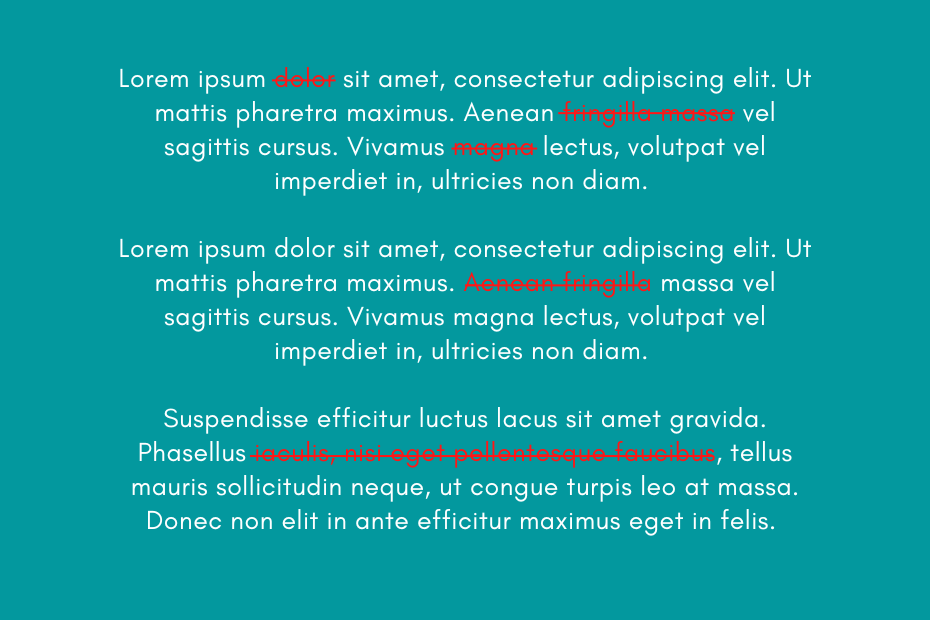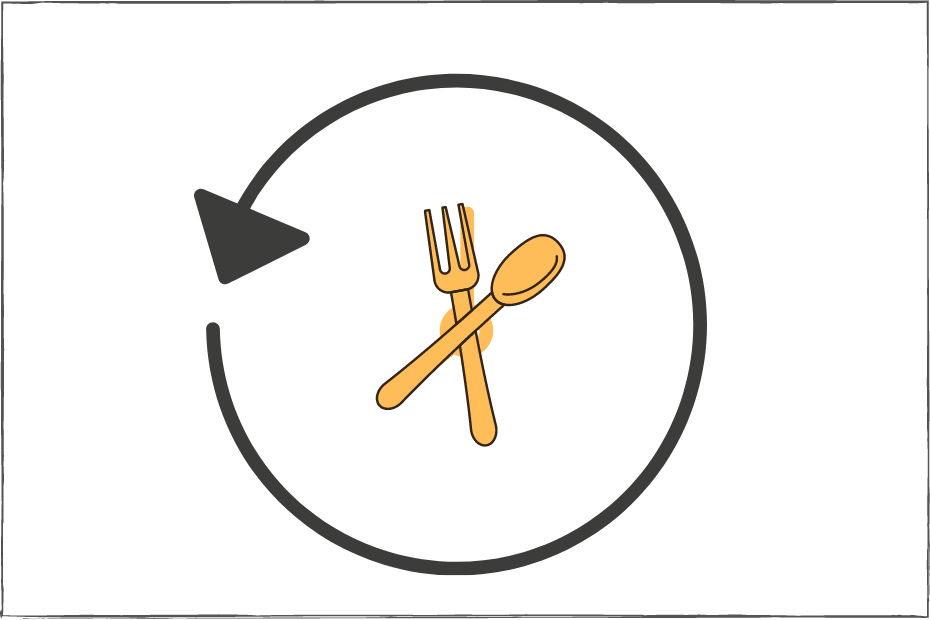Why is less more? Examples from Marketing & Life
We are addicted to growth. We have a "good economy" only when it grows. We feel productive only when we do more. We are wealthier when we have more stuff. But less is often more in life and marketing as well.

I am not a follower of movements like minimalism or simple living, but I am encountering the WHY behind these schools in more and more areas of my life.
We are thinking always in addition.
We throw money at problems too many times.
- If we want to lose weight we buy the trendiest supplement.
- To do better marketing we buy new tools.
- We make new year's resolutions to make our life better.
We rarely think about the upsides of removing, while the root cause of our problems is lying in having already too much on our table.
We should not buy new supplements but simply eat less. To do better marketing we should learn to use our existing tools rather than buying a shiny new one. Instead of chasing more goals, we should say no more often.
Appreciating "when less is more" has surprising upsides.
Why is less more?
We have a strange obsession with adding things. If we don't do that we start to question our role in the grand scheme of things.
Maybe we are not brave enough to embrace minimalism.
In the 20th century, there were several big schools of architecture that shaped what iconic buildings look like today.
Art Nouveau Architecture with its rich decorative motives, colorful tapestry, and ceramic works included architects like Antoni Gaudi. Gaudi houses like the Casa Mila or the Casa Vicens are attracting jealous eyes and plenty of tourists even today.

Though Art Nouveau buildings are spectacular when they stand out from the sea of ordinary houses, it is hard to imagine a whole city built in this style (and not looking comical).
But there were architects who rejected the notion of adding more.
Ludwig Mies van der Rohe was rather interested in removing objects and creating extra space. His minimalist style proved very popular.
The saying "less is more" is accredited to his name, and he serves as an inspiration for minimalists since then.
We don't have to choose between a Gaudi and a Mies van der Rohe building (though one of the famous works of Mies van der Rohe, the Barcelona Pavilion is not far away from the Gaudi houses).

Anyway, most of the time we don't have the luxury to rely on world-class smiths, ceramics, and visionary architects.
Minimalism serves as an inspiration to see the value when less is more.
Less concrete, less furniture, fewer choices, fewer goals.
More space, more freedom, more happiness, better results.
Examples of less is more
It is not that adding more things to our house, to-do list, or marketing toolset is often not the answer to our problems, but they even can cause bigger problems.
Let's see some examples from life and marketing when less is more:
Less choice, easier decision
“Learning to choose is hard. Learning to choose well is harder. And learning to choose well in a world of unlimited possibilities is harder still, perhaps too hard.” - Barry Schwartz, The Paradox of Choice
I love restaurants that put 3-4 of their "best dishes" or "chef's recommendation" at the top of their menu.
It is easier to choose and you are more likely to pick something good.
On the opposite side when there are 100 items on the menu, I got frustrated, and I am not able to pick anything (and ask the waiter for recommendations instead).
The paradox of choice presents a problem not just in restaurant menus. We have more options than ever before, but because we have more options it is harder to choose.
Often we experience choice overload.
Too many options are presented to us which makes making a decision almost impossible.
Growing through via negative

Growing through publishing more articles is not rocket science.
But my favorite kind of success stories in marketing and especially in SEO include the ones where a website grew through deleting the unnecessary.
- Hiding low-quality pages (filter, parameters) to Google.
- Deleting blog posts without any visits.
- Getting rid of tags on a WordPress site.
- Disavowing links.
It is not sexy to comfort that you (or your predecessor) did something which turned out to be ineffective.
When deleting you can not hide behind catchphrases like "we created value with our articles".
You did not create value, not even noise.
But you can optimize the user experience of your website by removing noise, making decisions easier and you can stop frustrating readers with half-baked thoughts.
Less but better quality
The impact of forcing myself to do things or do more of them can be fruitful but it has its downsides.
With blogging for example I knew that writing more is good.
There were times when I published some blog posts, then I disappeared for a few months just to come back later with another article.
I saw the impact of having more published articles.
I got more page views, better SEO, and more subscribers by doing more of the same thing.
So I forced myself to write two articles a week.
The too-tight schedule led to shallow articles.
I produced content without enough research and I put half-baked ideas on paper just to meet my publishing cadence.
Publishing less often but still consistently increased the quality of my writing and my results as well.
Fewer goals, happier life
"Nothing has sunk more creators and caused more unhappiness than this: our inherently human tendency to pursue a strategy aimed at accomplishing one goal while simultaneously expecting to achieve other goals entirely unrelated." - Ryan Holiday, Perennial Seller
I am writing this article in early January, a period when a lot of us are working towards making our new year's resolution a reality.
I am a goal-setting nerd.
I implemented personal OKRs and whatnot in Notion, I have a long end-year ritual, and I publish an end-year review every year.

What I learned after setting and often failing to achieve goals is that I tend to overcommit at this time of the year.
I pick too many goals, I have unrealistic expectations and I make my life more stressful because of self-imposed pressure and some unavoidable failures.
- Pick goals that truly matter.
- Limit the number of new year's resolutions (three is a good upper cap to aim for).
- Have fewer goals and be happier.
Better writing is fewer words

Stephen King shared his number one writing advice in his book On Writing: A Memoir of the Craft.
When King was a senior in high school he started to send drafts of his stories to magazines.
He received valuable advice from an editor which he clung into years after it:
“2nd draft = 1st draft – 10%”
His ideas were good.
His writing was okay.
But the draft was "too chubby".
Since then Stephen King is ruthlessly cutting words and he is suggesting the same for us.
Less but fitter
The fitness industry makes a lot of money by convincing us to buy something we don't have in order to lose something we have too much of.
Unfortunately, there is no shortcut to weight loss.
Drinking more shakes, getting a magic pill, or buying a fat burner t-shirt is rarely the solution to weight loss since they did not cause the problem in the first place.
To drop some weight the secret is to have less, not more.
I often use intermittent fasting, which is about not eating for an extended period of time. It helps me to drop some weight, and feel & think better.

But fasting is not trendy because you can not buy it.
You just have to do (or not do) it.
Less social media, less stress
We are long past the days when we celebrated social media as an innovative piece of technology. Most of us experienced the dark side of scrolling mindlessly for hours without getting anything in return (except ads and jealousy).
Logging out from all social media platforms for a period of time (social media detox) or ditching our devices altogether (digital detox) is another way how we can improve our life just by saying no to something which takes away too much.
Wrapping up why less is more
- Growing Through Via Negative
- Less but Better Quality
- Fewer Goals, Happier Life
- Better Writing is Fewer Words
- Less but Fitter
- Less Social Media, Less Stress
We all have a tendency to try and fix our problems by adding more, throwing money at them, or setting more goals. However, minimalism and simple living teach us that sometimes less can be more.
Examples from our day-to-day lives and from marketing can be seen when less choice, content and goals leads to better decisions, better quality and greater happiness.
By saying no more often, embracing minimalistic approaches and cutting down on clutter, we can have more space, freedom and better results.




